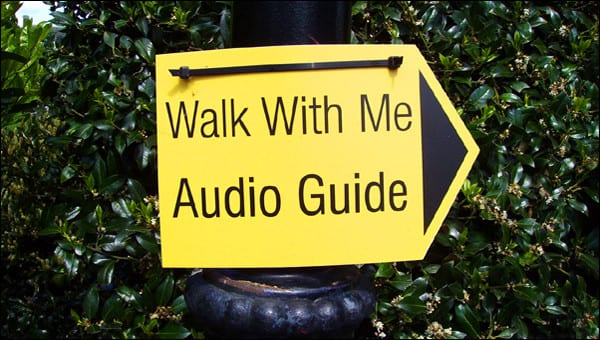
Touted as the future, so-called virtual music festivals are becoming more and more popular. The online gatherings are heavily dependent on the very latest technology, yet the core concept has its roots in the established guided audio tour. This post looks at virtual music festivals as well as the potential for additional ticket sales at your festival.
Are Virtual Music Festivals The Future?
Recently, Forbes Magazine published "Online Music Festivals: The Future Of EDM?" that featured the entrepreneurial spirit of David Moricca, founder of Mixify. Mixify enables DJs and electronic bands to perform in a virtual arena that their fans can participate in remotely. But taking the shared experience up another notch is just the beginning. Mixify has some genuine business benefits for the performer. Moricca explains:
The artists love [Mixify] because in a real, physical event they oftentimes don’t get that analytical experience where they’re hearing what the fans like in real-time. They also don’t get that personal connection.
Moricca cites its own RISE virtual music festival, saying the app proved itself as a revenue generator.
The everyday DJ can start their own events whenever they want. Mixify functions on a “freemium” model for DJs, were setting up an event costs nothing but upgrading the experience with custom visuals or advertising units tallies in at between $9.99 and $29.99 a month. We’re seeing about 3-5% of our current DJs converting to premium.
Mixify's RISE is similar to a virtual event from last year in Tokyo Japan. Sony and Naked Communications produced a virtual music festival called Headphone Music Festival (HMF) that was an exclusive to owners of a Nokia smartphone. Passerby of a large billboard was asked to download an app in order to participate in a virtual concert by Japan’s most popular band.
It is important to note that Mixify’s RISE and the HMF virtual music festival required a healthy dose of hardware and software. And both events had no connection to a real actual music festival taking place at an actual locale. But that disconnect may soon change since both virtual festivals are regarded as qualified business success stories.
Roots - Guided Audio Tours
The virtual music festival trend owes much to a long-standing tradition of audio guided tours, which have been a staple feature at museums and on walking tours for quite some time.
The public’s willingness to make the abstract connection between wearing headphones (or downloading a smartphone app) to able to experience a guided tour began in 1952 at the Stedelijk Museum in Amsterdam. Since then, audio tours have become a standard practice in nearly every museum in the world. The revenue from the audio equipment rental funds museums and municipalities alike and some venues offer the audio tour as a separate ticket.
Mixify RISE and Sony's HMF are simply the latest evolution in the tried-and-true practice of a guided audio tour. But will extending the experience beyond the boundaries of a physical venue help or hurt ticket sales?
How A (Sold Out) Music Festival Can Sell More Tickets
The potential of virtual music festivals as a revenue stream should be thought of as a ticketing task, or more specifically, a ticketing timing task.
Events, such as music festivals, that eventually sell out are good candidates for virtual extensions. The NFL grapples with finding the balance between in-person and virtual extensions every week during football season. The common practice of broadcast "black outs" is what the NFL uses as a control measure to ensure in-person ticket sales have priority. While tickets to a game are still available, the local television market cannot watch the game on local network TV channels. However, once all tickets are sold, the blackout is lifted and the hometown fans get to watch the game live.
This blackout policy can easily be applied to music festivals, or any event for that matter, as it would allow for extending the experience virtually while maintaining the ticket sale requirements at the event's location.
If your music festival is poised to sell all of the available tickets, enabling a third-party service like Mixify would let you continue to generate revenue indefinitely. And your event need not be a music festival either. As seen in the Alpha Psi Rodeo tweet above, all general admission tickets have been sold (hooray!). But since the popular rodeo is also host to a music concert, it could offer an audio-only stream to those who missed out on tickets. That offer could be carefully timed to only appear once the ticket inventory is at zero.
In order to tap into the new trend of virtual music festivals, your ticketing software will need to have the tools to allow for last-minute additions once all the regular tickets are sold.
The ThunderTix plan for festivals has the ability to add new tickets to the inventory fast. And our technology is flexible and easy to use, no matter what size event you may have. From giant music festivals to an intimate ten-person historical walking tour, the value proposition is the same. Want proof? Try our online calculator and see for yourself.
Be sure to take a look at our other features and sign up for a free trial today so we can get your music festival up and selling tickets online today!
